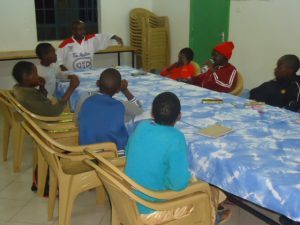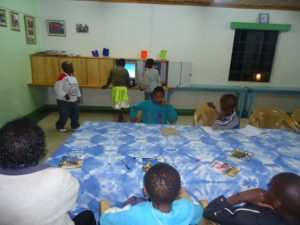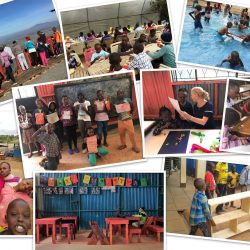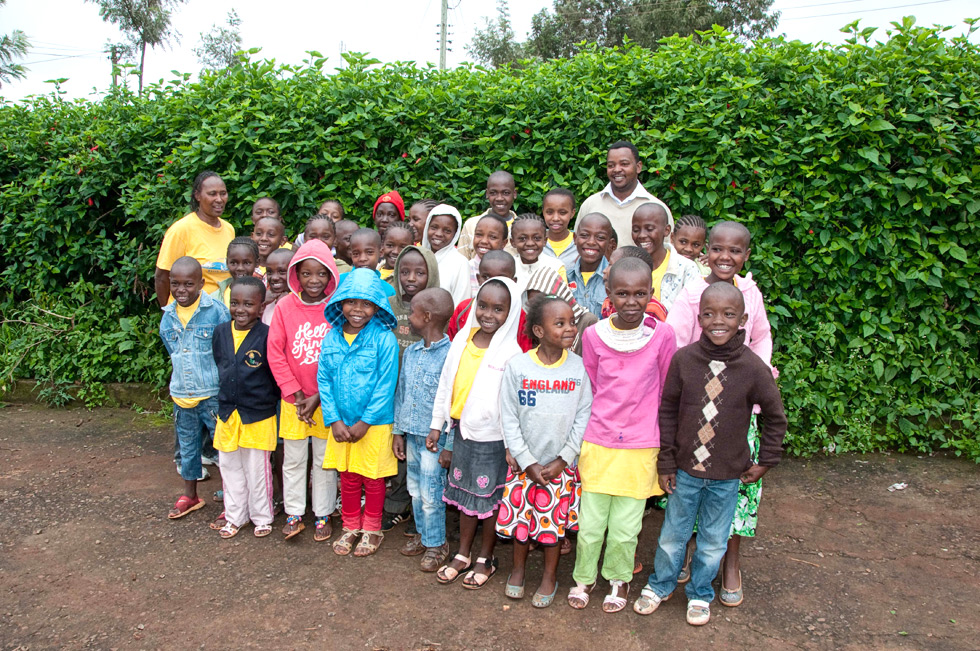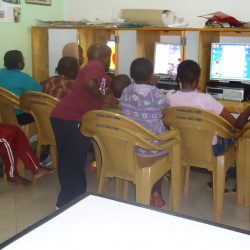Seit Februar diesen Jahres werden im MMH Computerkurse für Kinder und Jugendlichen angeboten. Hierfür wurden vier Computerarbeitsplätze im ruhig gelegenen Common Room eingerichtet, an denen nun mit Unterstützung eines IT-Coach gezielt Kurse in allgemeiner IT und Standardsoftware angeboten werden.

Hier ein Bericht zum Thema von Nicholas Maina Kirari, Social Worker MMH:
MMH EVENING COMPUTER LESSONS
On 8th February 2015, Mothers‘ Mercy Home computer lessons commenced. It was a long wait but nevertheless a journey of a thousand miles starts with a single step.
Initially we commenced with two computers but through the sponsorship of Cargo Human care, on 24th February 2015, we received two more computers. This will really assist in deliverance of practical lessons.
While ICT continues to advance in western and Asian countries, African countries still experience a lag in its implementation, and that continues to widen the digital and knowledge divides. In a recent study it was observed that access to ICT facilities is a major challenge facing most African countries, with a ratio of one computer to 150 students against the ratio of 1:15 students in the developed countries. Already we have bridged the gap for our children are in the ratio of one computer 1:5 to five students.
Whereas results indicate that ICT has penetrated many sectors including banking, transportation, communications, and medical services, the Kenyan educational system seems to lag behind. Further, recent report by the National Council for Science and Technology (2010) indicated that computer use in Kenyan classrooms is still in its early phases, and concluded that the perceptions and experiences of teachers and administrators do play an important role in the use of computers in Kenyan classrooms.
Luckly for our children they have an edge above the rest for they will be introduced to computers in as little age of 9 years which means by the time they will be joining secondary school they will be computer literate. Also after reintegration they will be provided with other course for example leadership and entrepreneurship other than the usual computer lessons they take before going for internship.
Although I will sight a few challenges facing implementation of computer education in Kenya. They are:
- Lack of enough qualified teachers to teach ICT in schools; the demand for ICT learning has been tremendous and the number of teachers who are trained to teach ICT cannot meet the demand. There are more students willing to be taught computing skills than there are teaches to transfer the skills.
- Lack of computers; Computers are still very expensive and despite spirited efforts by the government agencies, NGO, corporate organizations and individuals to donate computers to as many schools as possible, there still remains a big percentage of the schools unable to purchase computers for use by their pupils.
- Lack of electricity; many schools are still not yet connected to electricity; Kenya being a developing country, the government has not been able to connect all parts of the country to the national electricity grid. Consequently those schools that fall under such areas are left handicapped and may not be able to offer computer studies.
- Computers are still expensive in Kenya, in a country with a GDP of $1600, majority of the individuals and schools cannot afford to buy a computer and consider it as a luxury item, more expensive than a TV. While 2nd hand computers cost as little as $150 and branded new computers being sold at $500 or higher.
- Broken down computers; while a good number of schools have benefited from donated used computers, they have not been adequately equipped with the same on maintenance and repair, hence its very common to see a schools computer lab full of broken down computers, some repairable and some not. This has actually been a major problem, and the government has now put strict measures on any person, NGO or corporate bodies willing to donate 2nd hand computers. (It is seen as a dumping ground).
Conclusively ICT can play a significant role in equalizing opportunities for marginalized groups and communities. But the paradox is that for those groups that are unable to cross the technology divide, ICT is yet another means to further marginalize them. Education has a major role to play in resolving this problem. Thus, unless ICT becomes part of both the delivery and content of education, the disadvantage will deepen and development will suffer. But the failure to use ICT is itself a result of the digital and knowledge divides that exist, and their causes are deeply embedded in the complex historical and socio-cultural context of the country. Fortunately, with the Vision 2030 goals, the Kenyan government has begun to implement strategies that will address these paradoxes.
Thank you all for your great Support

